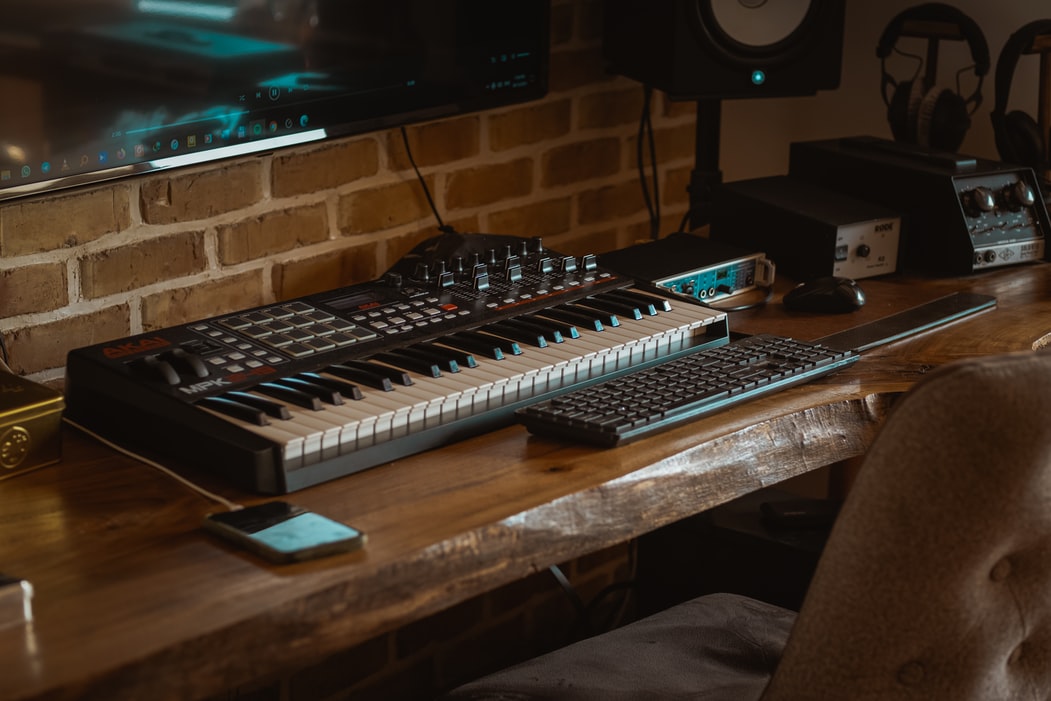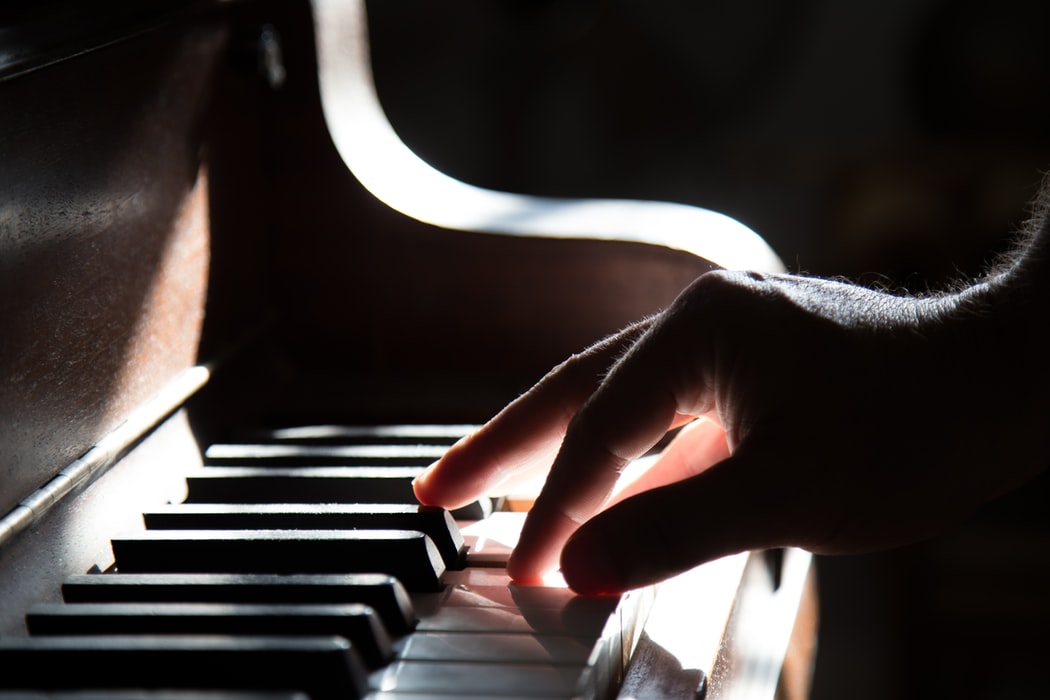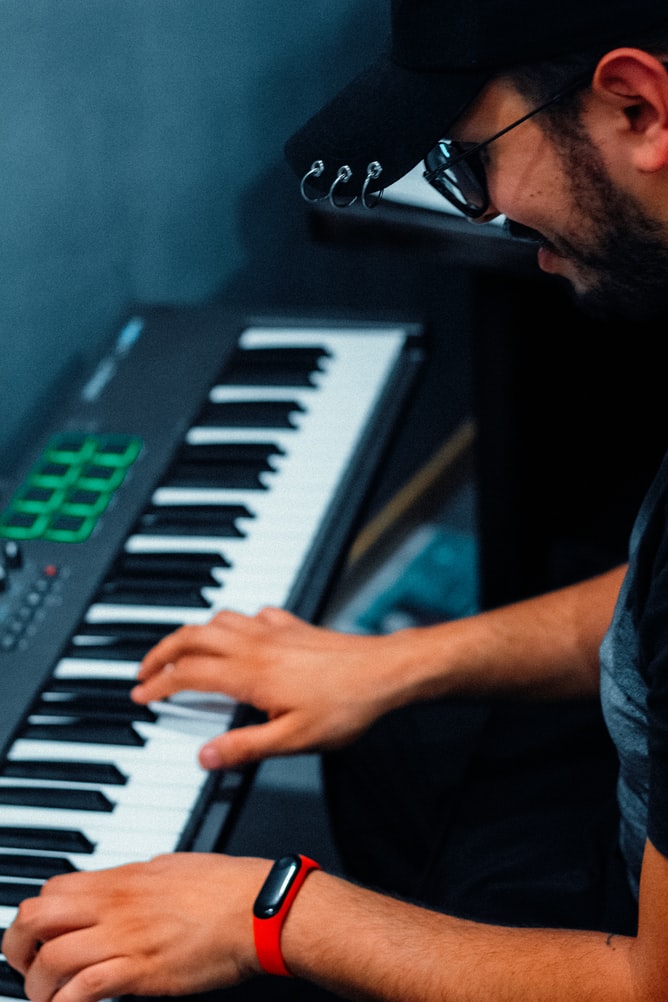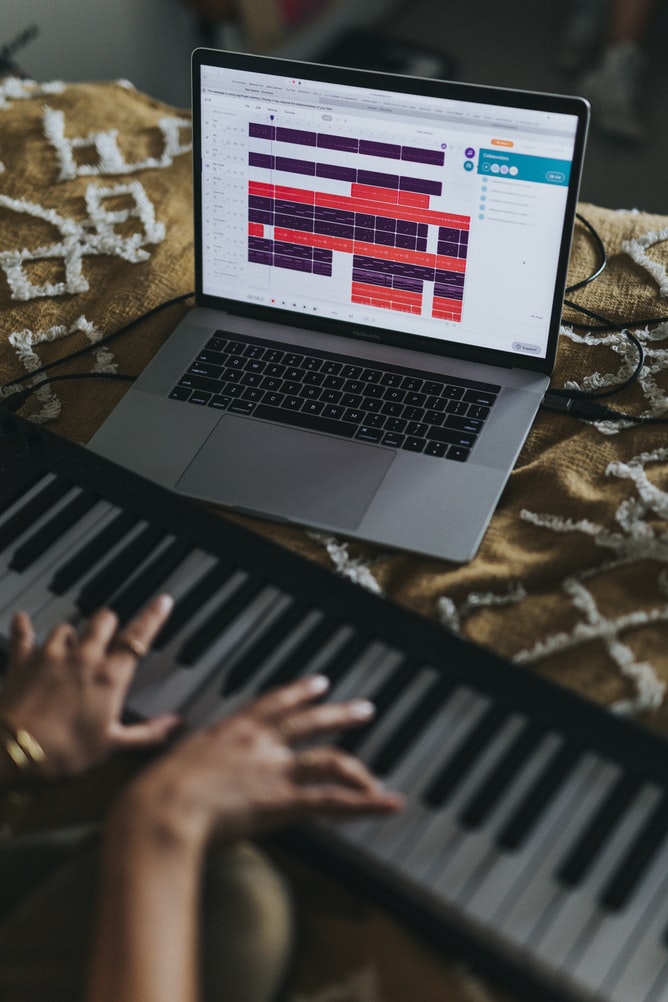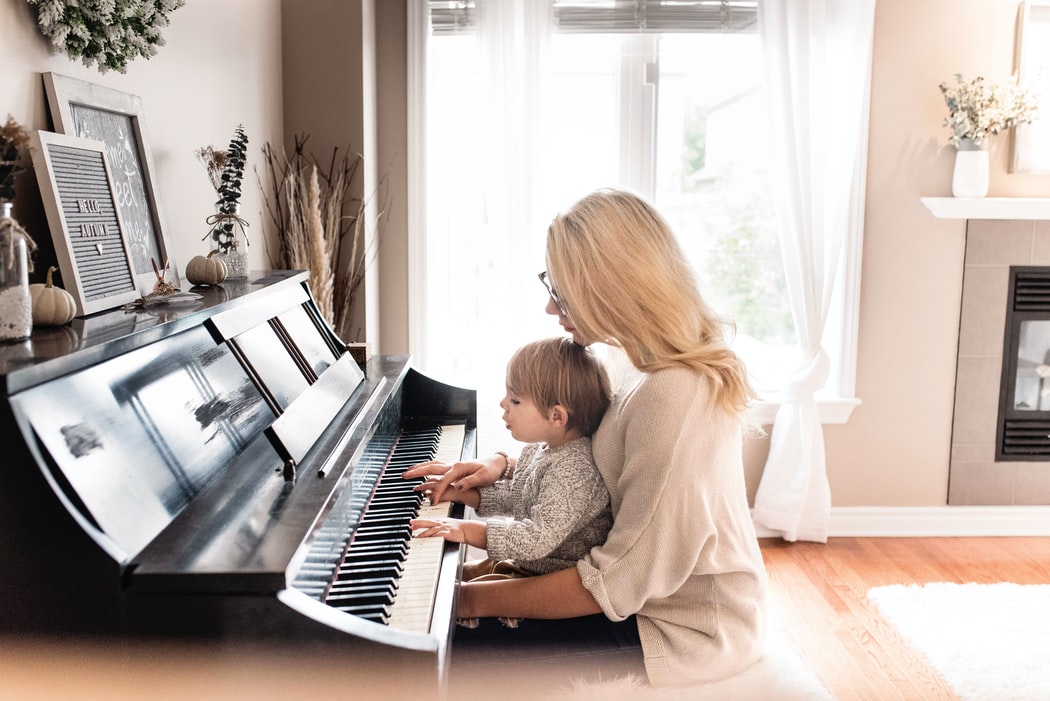If you’re looking to learn how to play keyboard or piano, it can be really hard to know what decisions to make when it comes to equipment. There are many different choices when it comes to buying a keyboard. If you’re brand new to the hobby, you might have to make decisions based on things you don’t fully understand. So, what size keyboard to get for beginners? How many keys do you need, and how important is portability in the scheme of things?
The truth is that there is a lot of personal preference. However, there is certainly a minimum viable size for people who want to learn how to play piano to a good standard. If you buy a miniature MIDI keyboard with 25 keys, you might be able to learn chords and melodies in isolation, but full songs become a challenge.
In this guide, we’re breaking down the options you have for buying a keyboard. What size is ideal, and are there other considerations? Read on to find out in our guide.
How Many Keys do Pianos Have?
How many keys do traditional pianos have? 88.
Nobody even knows exactly why! There are examples of bigger models, both historically and in modern pianos. Over the years, big manufacturers like Bosendorfer led the way with creating 88-key pianos.
Nowadays, if you are going to buy a digital piano, with all the playability and none of the tuning, you will find that the majority have 88 keys. This is what most people regard as “full-sized” when it comes to piano.
Keyboards fill a slightly different remit.
If you are looking to buy a keyboard, you probably value portability. This means that 88-keys might be too much. It makes it tough to store the keyboard and may not be quite as portable. If you need to take it with you to gigs or practice sessions then a smaller, 49-key model will be easier to take with you. Is this enough, however?
Piano/Keyboard Sizes
Over the years, keyboards have become standardized in terms of their size. Most keyboards are based on a number of octaves, starting at “C” and ending at “B”.
So, some simple maths tells us that a 25-key keyboard has a 2-octave range, while a 49-key keyboard has 4 octaves, a 61-key keyboard has a range of 5, a 76-key keyboard gives you a range of 6 octaves. The “full-size” of 7 octaves come from an 88-key keyboard.
These are the main sizes keyboards are sold in. 25, 49, 61, 76, and 88-key models are all widely available. In the modern age, there are so many different types of keyboard you can buy. You can get 37-key keyboards, for example. These aren’t particularly popular.
Why all these sizes?
Simply put, manufacturers want to accommodate for everyone’s needs. If you’re buying keyboards for a school classroom, you probably don’t have room for a lot of 88-key models. If you’re just looking for something to hit a few notes on Ableton or other music production software then 25-keys might even be enough.
The beauty of the piano or keyboard is the fact that the pattern of an octave repeats up and down the piano. Once you learn how to play, you’ll know exactly where you are on every piano or keyboard because of the repeating pattern. If you learn something on a 49-key keyboard, you don’t have to learn it all over again if you move onto an 88-key model. You just have to work out where you are on the piano (which octave) and you can play away!
Is 76 Keys Enough to Learn Piano?
A 76 key keyboard or digital piano can give you a big upgrade when it comes to portability!
Check out the NP-32 by Yamaha, a digital piano rather than a keyboard, but it takes up less space and gives you almost all of the functionality that an 88-key model can.
You might save 50 lbs in weight when compared to some other digital piano consoles! The Piaggero can come with you to band practice, and unless you’re regularly playing Beethoven concertos (or other classical music) then you won’t find the 76-key design limiting.
This model offers full-sized keys. If you’re wondering what size keyboard to get, but you want to embrace almost the full range of a traditional acoustic piano, this could be the answer for you.
As you can see, this keyboard/digital piano has speakers included, so you can play it anywhere and not have to worry about hooking up to a PA system, for example.
What makes it a good choice for beginners? The full-size keys and impressive range means that you can comfortably learn two-handed, and even if you get to the stage where you can play impressive solos or classical pieces, you won’t necessarily have to upgrade to 88-keys.
76 keys can certainly be enough for you to learn to play any style of piano with no limits.
Is 61 Keys Enough to Learn Piano?
61-keys is the most popular size of keyboard. You drop two octaves from the full range of a piano, but crucially it is possible to still play with two hands. For the vast majority of pop songs, you wouldn’t even notice the difference when playing on a 61-key keyboard, unless it has some particularly high sections.
For this reason, 61-key keyboards represent a real sweet spot. A huge number of the keyboards on the market are this size.
If you want a model that allows you comfortably enough space to learn how to play with two hands, this size could be your answer.
Why is this important? We’ve discussed more on playing with two hands here. To put it simply, playing with one hand will usually sound thin and doesn’t allow you to play to a professional standard. Pianists play with two hands so that they can play more complex passages, combining chords with a melody, bass with a melody, or bass with chords.
If you play with a keyboard that is too small then you’re not going to be able to enjoy the full range, as you will run out of space. You might be able to play the basics, but you won’t be able to reach the bass octaves or the high-end simultaneously.
Is 49 Keys Enough to Learn Piano?
Although you can get two hands on a 49-key keyboard, it is limiting for a lot of songs, even pop songs that don’t rely on using a big range and advanced techniques.
Whether 49-keys is enough for your own needs comes down to personal opinion.
If you just want to play a few chords, you might find that 49-keys is plenty. As a beginner, you can learn a lot of techniques on a 49-key keyboard. Including:
- Playing chords
- Simple melodies
- Playing bass along with melodies
- Playing some very simple two-handed songs
If you have access to a 49-key keyboard then you can make plenty of steps towards becoming a quality pianist. It’s limiting, but no so limiting that you can’t get started, and if you are really short on space then this could be your ideal partner.
Many of the 49-key models are either MIDI keyboards, or add some other features such as synthesizers, or function as workstations. Check out one such model below:
MIDI Keyboard VS Keyboard
If you are shopping for a keyboard you will come across this term a lot! So, what is a MIDI keyboard?
MIDI stands for Musical Instrument Digital Interface. It’s a system for keyboards and other instruments to “communicate”. For example, you could connect a keyboard to synth module via MIDI to trigger the sounds.
In the modern age, digital pianos and keyboards more commonly have MIDI capabilities in order to connect to computers. A MIDI to USB cable lets you send MIDI signals to your computer to control music software. It’s also the technology used by our innovative lesson system. It means that when you take one of the lessons in our academy, you can get feedback on how well you performed and whether you hit the right notes.
Most modern keyboards have the ability to connect to a computer via MIDI. However, there is a difference between a keyboard with MIDI and a specific MIDI keyboard…
A MIDI keyboard doesn’t usually have sounds included. Instead of triggering sounds on its own, it is just controlling other hardware and software. The easiest way to take a MIDI keyboard and create a sound is to use it with your browser. On Pianu, you can use your MIDI keyboard to trigger piano sounds. The second way is to connect it to a computer and use it to control software such as Logic, GarageBand, or FL Studio.
If you buy a keyboard that is not a specific MIDI keyboard, it is likely that it will have many sounds included. It may also have MIDI capabilities, so you can connect it to your computer for even more control.
How Much is a Keyboard?
As well as choosing what size keyboard to get for beginners, you will probably be looking at the price tag. If it’s the first keyboard you have ever bought, it’s unlikely that you will have any frame of reference!
Keyboards are like the majority of music equipment. You can find relatively cheap options on the market, but they might not be the best quality. Alternatively, you could buy a keyboard that makes your eyes water due to the high price tag!
If you want a keyboard that has a lot of functionality and works as an arranger, you can easily spend many thousands of dollars. For beginners, we don’t recommend this.
If you’re a beginner, looking to buy a keyboard rather than a digital piano, $200-$300 is a reasonable budget.
If you want to take a step up and buy a digital piano then these start at around $500, if you want a decent model.
Differences Between Digital Piano and Keyboard
This is something we’ve covered in more detail elsewhere on our blog. Digital pianos are designed to feel and play like an acoustic model. Keyboards don’t have the same sort of concern as to how they feel. They will usually have piano sounds inbuilt, but they might not be as realistic as a digital piano.
On top of this, keyboards don’t usually have realistic keys. They may be velocity-sensitive, allowing you to trigger louder notes if you hit the key harder. However, they’re unlikely to have the same signatures of digital pianos such as Graded Hammer Action. They’re designed to imitate an acoustic piano as closely as possible.
Keyboards are usually cheaper and smaller, they are also lightweight and can be put into gig bags to take to practice. Some digital pianos do a decent job when it comes to portability, but the 88-key design makes it hard for people to take out and about.
The guide below does a brilliant job of explaining the differences between a piano, keyboard, and a MIDI controller. It focuses on what to buy for your current musical setup and if you plan to learn how to play the piano.
Due to the fact that digital pianos are more expensive, many people opt for a keyboard to get started. It is no problem to start to learn chords and melodies on a simple keyboard, and you can always graduate to a digital piano or even an acoustic piano in the future.
How to Play Piano With Two Hands – Number of Keys for Two-Handed Playing
A lot of beginners know that playing two-handed is one of the crucial aspects of learning how to play piano. They often ask ask how many keys it takes to be able to practice this and start to play with two hands. The truth is that the answer can vary somewhat.
Playing two-handed is not just about being able to fit both of your hands on the keyboard. You may need ot reach a much lower octave to hit the bass notes, and this might mean you need to leave octaves in the middle unplayed.
The truth is, that at under 76 keys, you might have to make some form of compromise. But what is the minimum size of piano for two-handed playing?
Well, we definitely wouldn’t recommend going under 49 if you want to learn how to play the keyboad two handed. However, if you just want to focus on the basics then a 49 key keyboard might just get you through. In truth, you will have so much more flexibility if you can extend your search to 61 keys. The range this offers makes all the difference.
How to Choose a Keyboard for Kids
If you are wondering what size keyboard to get, you may well be buying for a child! Kids are sponges for information, and there are so many reasons to get your child to learn how to play piano or keyboard. It’s even been shown to help with their cognitive development.
So, what size keyboard is suitable for children?
Just like an adult trying to learn how to play the keyboard, getting a model with more than 49 keys will allow you the option to play with two hands, and therefore play far more songs.
There are some specific keyboards for children out there. These often have smaller keys, which means that your child can play more comfortably. Very few children have a large hand span that can allow them to play on a full-size piano.
A lot of childrens keyboards also include some really cool added features and functions, including some novelty sounds and inbuilt songs. This is a good way to keep kids engaged when they would possibly otherwise lose interest in the hobby.
If you choose the right model for your kid, you never know, they might be playing like a virtuoso in no time…
61 Key Keyboard for Beginners – Recommended Model
There are a few different keyboards we could happily recommend for beginners. If you’re new to the hobby, you’ll want a keyboard that ticks multiple boxes:
- Big enough to play two-handed, even with relatively complex melodies.
- Easy to set up and start to use.
- Comes with any accessories you might need.
- Good value. If you are new to playing the keyboard then you might be worried about spending too much before you know if this is the hobby for you!
Alesis Melody 61 MKII – 61 Key Music Keyboard / Digital Piano with Built-In Speakers
The Alesis Melody ticks all the boxes!
As well as being portable and lightweight, it comes with a stand, built-in speakers and even a small bench. This means that you can either play it on the go, or set yourself up with a smaller station at home, allowing you to practice whenever you want.
This is an affordable product, too, though you wouldn’t know it from the features. As well as having 300 voices (sounds or tones you can trigger while playing the keyboard) it also includes 40 demo songs. A ¼” stereo headphone output also means that you can hook this up to headphones and practice in private. If you’re a parent buying a keyboard for beginners for your children then this can be very beneficial!
This is also right in the sweet spot in terms of size. 61 full-size keys means that the product is not so big that it is difficult to take out and about with you. It’s also not so small that you’ll have to significantly restrict how many songs you can play.
For any budding singer-songwriters, this model also comes with a microphone. You can plug it in and sing along with your playing. Your singing will be amplified through the speakers.
While you’re not likely to see this keyboard used in a professional studio anytime soon, it’s great for both children and adults who want to learn how to play piano.
88 Key Digital Piano for Beginners – Is it Worth It?
So, we’ve established that a “full-sized” model is 88 keys. If you want to buy an 88-key model then you are likely to pay more, as well as sacrificing some of the benefits that go with smaller keyboards.
If you don’t need to take your keyboard out of the house too much then an 88 key digital piano or keyboard could be a great option. A lot of people opt for digital pianos that have a “console” design. This means that they come with a full stand, and even replicate the look and feel of an acoustic piano.
If you buy a digital piano rather than a keyboard, you can usually take advantage of a more realistic sound. Brands like Yamaha and Casio have spent a lot of time and money developing their sound engines, which can provide you with an exceptional sampled sound from one of the classic acoustic pianos.
For beginners, and those who aren’t sure if they are going to stick with the hobby, then it might be overkill to buy a large model like this. For most kids who are excited by the idea of starting to learn, a keyboard, such as a 61-key model, will be enough to learn the majority of techniques before moving onto something like a digital piano or even an acoustic piano.
Conclusion
As you can see, beginners have to think about a lot of different features and functions when they are looking to buy their first keyboard. If you are looking to buy a keyboard for the very first time then the size is definitely something to keep in mind. A 25-key keyboard or even a 49-key model might look like a good space-saving option, but you may find that it is extremely limiting when you start to play more complex melodies and songs.
Though 88-keys is the full size for pianos, you can get away with a 61 or even a 76-key model of keyboard as a smaller alternative.
It’s a good idea to choose a model with plenty of sounds, and a great piano sound as a baseline. You should also consider the MIDI capabilities. MIDI-USB connection will allow you to use the interactive Pianu academy and even get feedback on your playing without a tutor!
